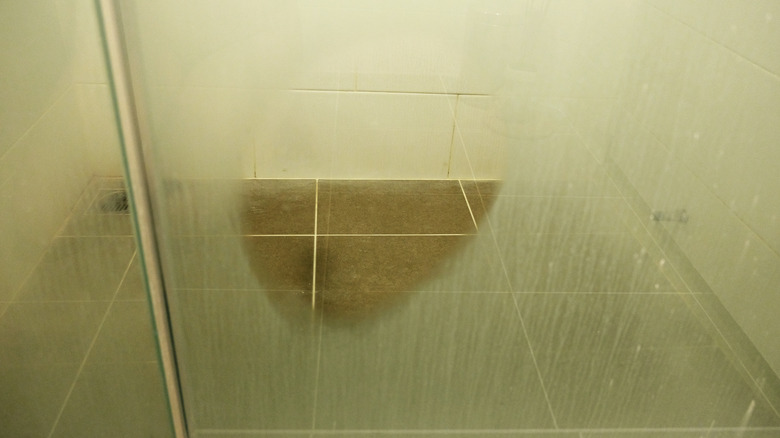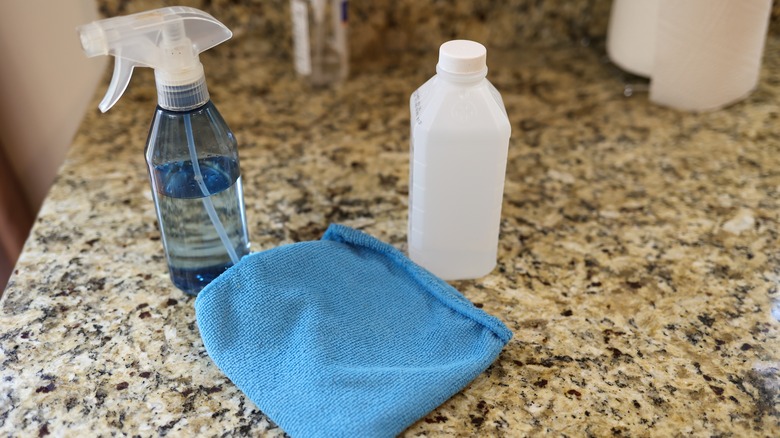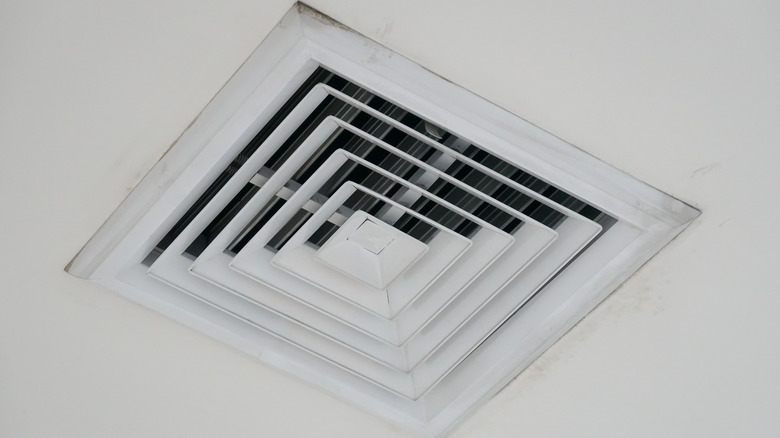Is Rubbing Alcohol The Secret To Streak-Free Shower Doors?
Dingy shower doors can quickly grate on your nerves when they continually look dirty and streaked despite your best efforts to keep them sparkling. However, you don't necessarily need to go to great lengths to get your shower doors in tip-top shape because plain old rubbing alcohol may be the one handy ingredient in your cupboard that can do the trick and clean your shower doors easily.
Rubbing alcohol can be a helpful tool in cleaning the shower because it attacks dirt and grease and kills bacteria and fungus. Its ability to dissolve soap scum, mineral deposits, and hard water stains makes it effective at removing common shower door culprits. The alcohol molecules loosen the bonds holding these substances to the glass, making them easy to wipe away. It also has disinfecting properties. This can be beneficial for removing bacteria and other microorganisms that can build up on shower surfaces, promoting a more hygienic bathroom environment. Additionally, rubbing alcohol evaporates quickly. This minimizes the chance that drying residue will leave behind streaks. That's especially important for shower doors where water droplets can quickly spread cleaning solutions and leave uneven traces.
How to use rubbing alcohol for cleaning shower doors
The first thing you want to do after a shower is use a squeegee. Then, dry the doors with a microfiber cloth before you add cleaning solution. Regularly squeegeeing your shower doors after each use can significantly prevent water spots and soap scum buildup. Alcohol is an effective method to clean glass shower doors and there are a few ways to do it. One way is to dilute it and mix it with an equal volume of water in a spray bottle, and then clean it with a microfiber cloth. You can also add water, vinegar, or even dish soap to create a gentler and more effective cleaning solution. Aim for a 50/50 mix with water as a starting point. Another way is to add ½ cup ammonia, ½ teaspoon liquid dish detergent, and one pint of rubbing alcohol to water until the solution weighs a gallon. Then mix and pour into spray bottles.
For a daily cleanser, fill up a spray bottle with water and add ½ cup of rubbing alcohol, ½ a cup of hydrogen peroxide, a tablespoon of dishwashing rinse, and a teaspoon of dishwashing liquid. After cleaning, buff the glass dry with a separate dry microfiber cloth to eliminate any remaining droplets that could leave marks.
Precautions to take when using rubbing alcohol
While rubbing alcohol can be a handy cleaning solution, handling it with caution is important due to its flammable and potentially harmful nature. Additionally, there are some places you may want to think twice about when it comes to applying rubbing alcohol. Always use rubbing alcohol in well-ventilated areas to avoid inhaling fumes, which can cause irritation and respiratory problems. In small spaces like bathrooms, run a fan or open the windows before cleaning. Rubbing alcohol is also highly flammable, so keep it away from open flames, heat sources, and sparks, and never smoke near it.
You also want to avoid contact with eyes and skin. As a simple precaution, wearing gloves and eye protection when using it is best, especially if you have sensitive skin. If rubbing alcohol gets in your eyes, rinse immediately with clean water for 15 minutes. If it still burns after that, you may want to see your doctor.


